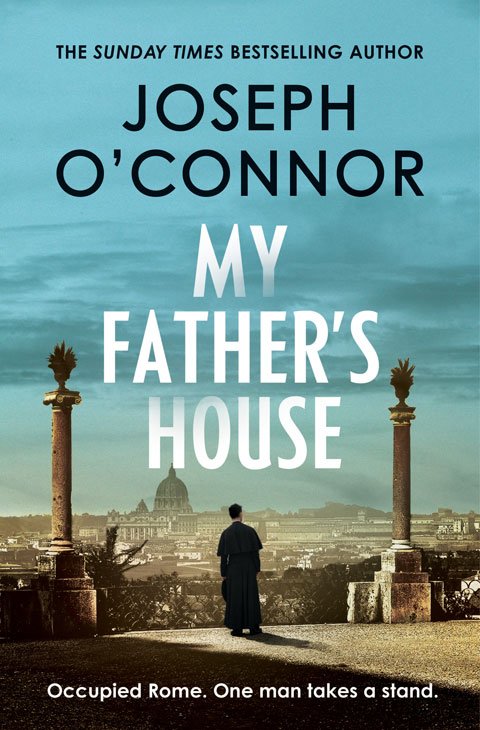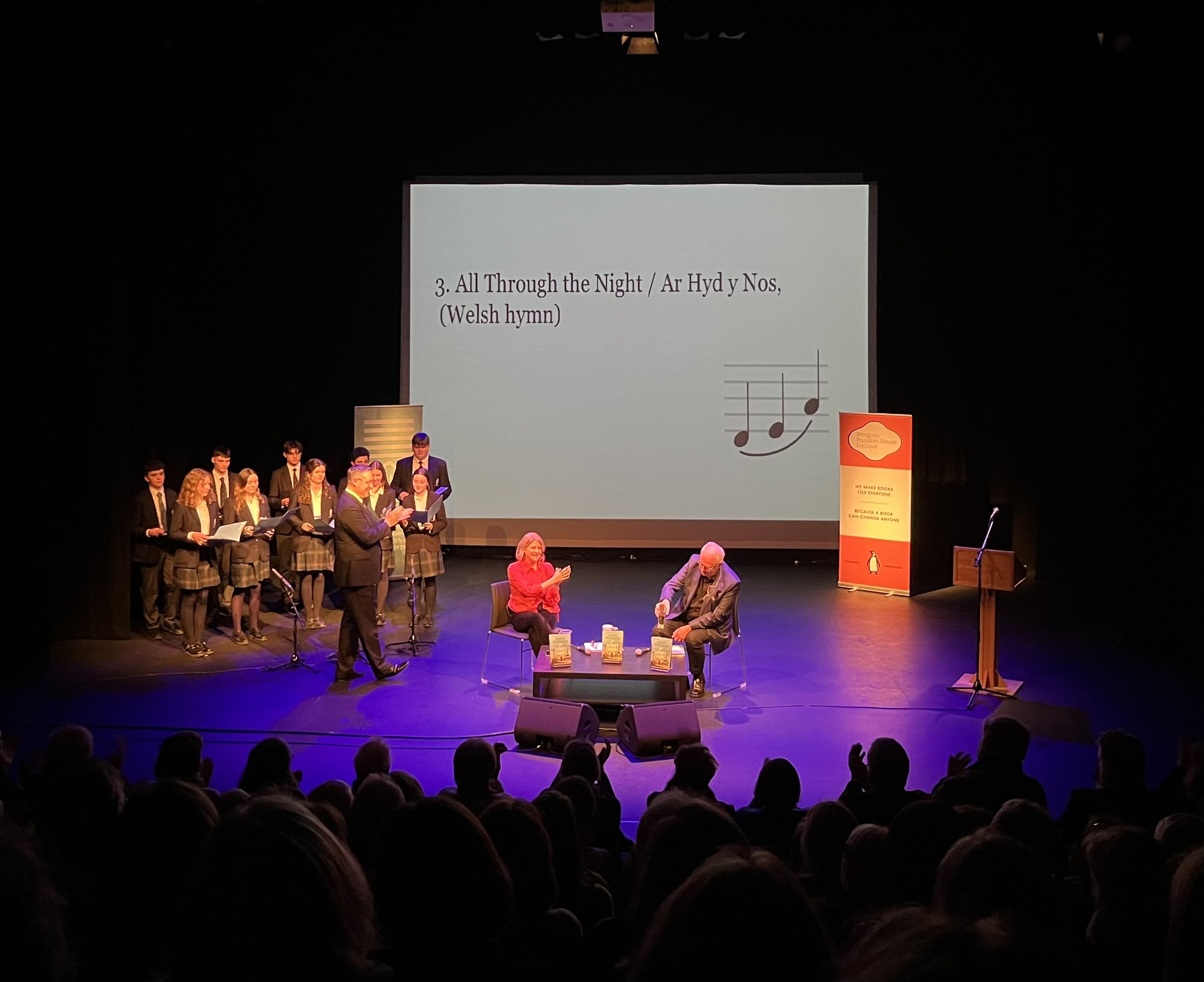Joseph O'Connor's 'My Father's House'
Last week I went to an event marking the publication of Joseph O’Connor’s new novel, My Father’s House, at the Pavilion Theatre, Dun Laoghaire. Our school chamber choir, directed by Eunan McDonald, sang beautifully at it (pictured below).
A musical performance was appropriate: the book fictionalises the story of the ‘choir’ put together by Monsignor Hugh O’Flaherty in Nazi-occupied Rome, and how they assisted about 7000 people along an Escape Line to safety. Music recurs throughout the story, and of course music is always available to us as a consolation in life in the darknesses of this world, just as O’Flaherty and friends were in Nazi Europe. Joseph O’Connor said he wanted to celebrate the heroism of those who decided to do something, who could not stand aside and do nothing, despite the potential cost to themselves.
The author himself is the conductor, as well as composer, of this book. As in his previous novel, Shadowplay (about Bram Stoker), the story is told through a series of perspectives, different voices and documents, from the third-person narration of O’Flaherty’s expert navigation around Rome, to O’Flaherty’s own first-person ‘Testament’, to the smooth insouciance of the gay British ambassador Sir D’Arcy Osborne to the hard-won wisdom of the Dutch journalist Marianna de Vries. And there are more. All of that takes considerable skill, and a lesser, or less-experienced author, could easily end up with an unharmonious mess. But it works just as O’Connor wants, a compulsive narrative that keeps you on your toes throughout, ending with a moving coda about O’Flaherty in old age in London.
This is the first volume of a trilogy, with other characters from the ‘choir’ to be centred in the coming books. But for me the central character was the Italian city itself, a brilliantly-evoked Rome under occupation, hemming in the world’s smallest country, which was threatened with German invasion at any point. It’s impossible to think that this book and its successors will not be filmed as a cinema feature or TV series, but it’s almost impossible to imagine that any filmed version will evoke the place as pleasurably as O’Connor does.

